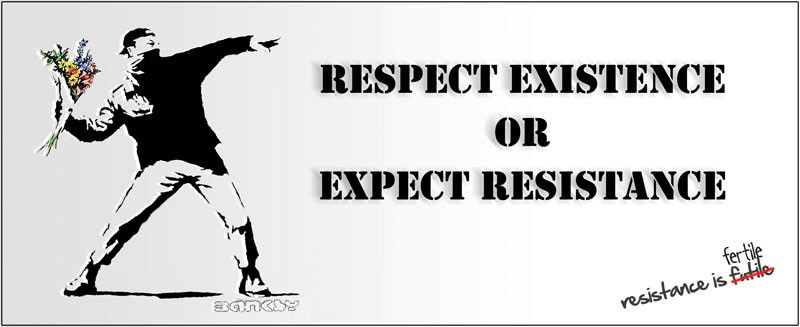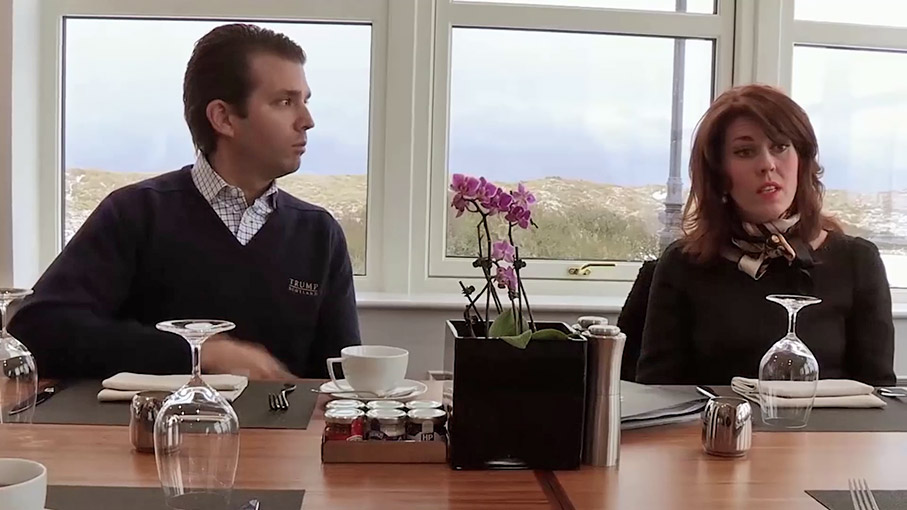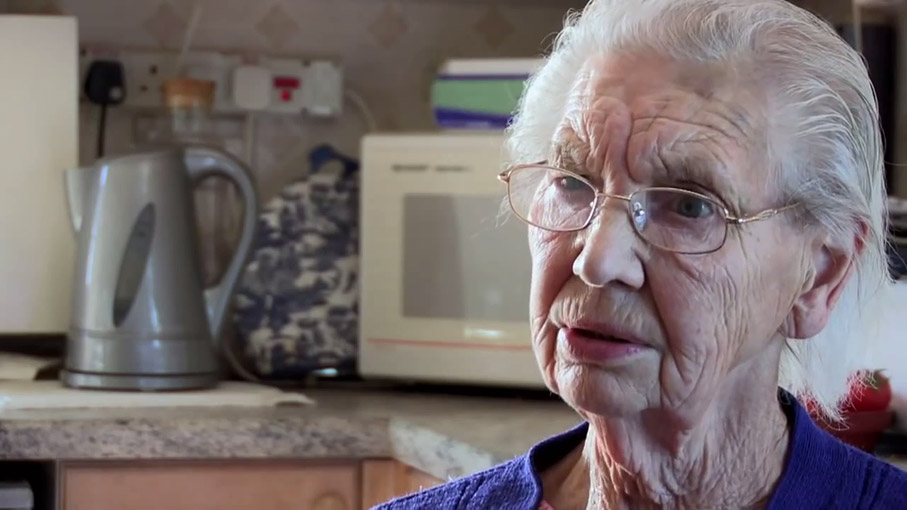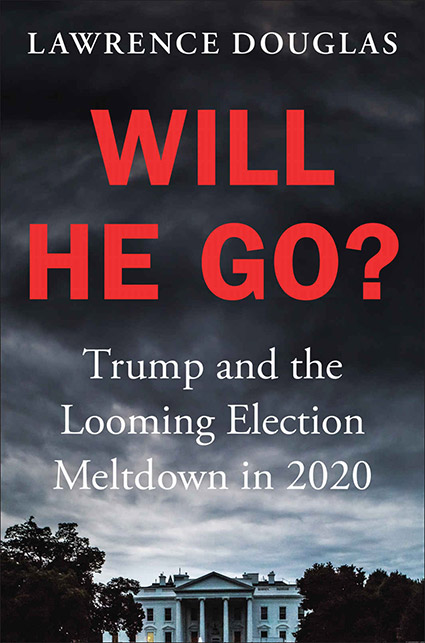| |
‘This not simply another four-year election; this is a crossroads in the history of our civilisation; this is a struggle for the survival of our nation, believe me. And this will be our last chance to save it.’ |
| |
Presidential Candidate Donald Trump, 2016 |
The academic and activist Charles V. Willie once said that, ‘By idolizing those whom we honour we do a disservice both to them and to ourselves’. That short, sharp statement has huge democratic import. It implies, among other things, that we should be wary of leaders and trust to ourselves. Too much time is spent discussing politics in terms of personalities and too little time dissecting the institutions behind and beneath them, the power structure if you will. For those of us who’d rather not talk about Trump and certainly sooner not think about him, here’s the rub: the more dangerous leaders become, the more we’re duty bound to talk about them and are forced to think about them. Too much has been said about Trump already, but with the US presential election only weeks away, now seems the time to turn to him and think through what the consequences of what his inconclusive defeat might be.
It would be instructive to ask Trump Tony Benn’s famous five democratic questions: ‘What power have you got? Where did you get it from? In whose interest do you use it? To whom are you accountable? And how do we get rid of you?’ Anthony Baxter’s 2011 film You’ve Been Trumped and his long-delayed, recently released 2016 sequel You’ve Been Trumped Too ask no such questions. They simply consider Trump’s callous mistreatment of a rural Scottish community and his creation of what he calls, with characteristic hollow hyperbole, ‘the greatest golf course anywhere in the world’. These engaging and enraging films do, however, fan out from once wild sand dunes on Scotland’s eastern seaboard to assume international importance. Taken together, as they now can and should be, they highlight a familiar cinematic paradox: the capacity of slight and slightly dated films to float free of their makers and grow in stature with the passage of time. By sending prescient messages to the present and future from the past, Baxter’s Trump documentaries rise above the level of ‘human interest’ storytelling. They reveal Trump’s contempt for people, disdain for truth, boundless rapacity, and ruthless modus operandi. They also provide timely reminders of how successful resistance to superior forces and struggles against seemingly overwhelming odds can be.
The resistance of residents of the Menie estate, just south of Aberdeen, to Trump’s environmentally destructive vanity project mirrors the filmmaker’s own struggles to secure funding and distribution for his films. Baxter, who was born in Angus (the birthplace of modern Scotland) faced down persistent legal threats from the Trump organisation as they attempted to prevent the circulation of You’ve Been Trumped Too. Baxter’s earlier companion piece was also subject to injunctions but was seen by over a million BBC viewers in 2012 and by tens of thousands when it screened in the States prior to the 2016 US presidential elections. The legal threats against the later film were more forceful and, though ultimately unsuccessful, they derailed the film’s initial release campaign after the US distributor ran scared and pulled out, a deal for the film’s digital release fell through, and the PR company handling it dropped Baxter. He is to be applauded for his courage and tenacity. So, too, are Journeyman Pictures and ARPR, but, above all, we should salute all those resilient refuseniks of the Menie estate who defied bribery, bullying and intimidation, who refused to sell up and bow down to the unflinching billionaire.

Among those that stood firm were the Forbes family, descendants of a long line of salmon fishermen and ploughmen. Baxter’s films revolve around Molly Forbes, a former land girl now in her late nineties and living out her days in a care home, and her son Michael, a farmer and fisherman who, in 2012, was voted ‘Top Scot’ in the annual Sprit of Scotland awards. Molly refused to sell ‘Paradise’, the humble bungalow she’d lived in all her life, despite threats of compulsory purchase orders. Michael refused a lucrative job in the Trump organisation that would’ve made him a rich man. For them, principle trumped profit, love of the land of their forebears trumped love of money. In 2010, as Baxter began filming You’ve Been Trumped, construction workers employed by Trump severed a pipe near Mrs Forbes’ home and cut off her water supply. Her well, literally, ran dry. Some suspected foul play. Be that as it may, the elderly widow was thereafter forced to draw her water from a nearby brook or rely on bottled mineral water provided by relatives. Five years later, Baxter was shocked, he tells us, to discover from Mrs Forbes that she was still without running water. During testy exchanges between Baxter and Paul O’Connor, Trump’s Chief Greenkeeper, we see the latter promise that problem would be fixed immediately and that the fractured pipe would be replaced with ‘the best system there is’. Viewers might wonder why Baxter had not enquired after Mrs Forbes’s health for such a long time but, no matter, he duly returned to Aberdeenshire and immediately began work on You’ve Been Trumped Too – to reveal many more lies and much chicanery.
When Trump bought the land on which the controversial golf course now stands in 2006, he promised locals the moon on a stick. He claimed he’d build ‘a billion-pound golf resort’, a vast 450-room hotel and 950 holiday-let houses, provide thousands of jobs, and inject transformative investment into the local economy. Today, the golf course is trading at a loss and employs under a hundred people, his courses in Scotland and Ireland have reported trading losses totalling $63.6 million, the hotel and houses have yet to materialise, and a tatty wee clubhouse stands forlorn in the decimated wind-battered landscape. Trump did convert the 14th Century Menie manor house into a 16-bedroom, 5-star lodge, naming it after his Scottish mother Mary Anne MacLeod, but when Tatler magazine sent Henry Mance to review it last year, he found it, well, well-nigh empty. As Mrs Forbes said just before Trump’s election in 2016: ‘He promises the world but it never happens. Never trust Trump . . . I pity America if he’s President . . . I hope it doesn’t happen – for America’s sake and for the world . . . He doesn’t care for anybody or anything but himself. He is a child never grown up’.
You’ve Been Trumped is aptly bookended by clips from Bill Forsyth’s imperishable classic Local Hero, which tells of an avaricious American who sends one of his minions to a remote Scottish coastal village as part of his fiendish plans to buy and despoil a place of breathtaking beauty. Like Whisky Galore before it, Forsyth’s film is, on one level, a light, whimsical comedy and as seemingly slight as its predecessor was and as Baxter’s documentaries are. Local Hero and Whisky Galore are both magical, magnificent and timeless. They are tinged with the diaphanous glow of fairy tales. Like Baxter’s films, they have grown in stature down the years. All these films tune their violins for frequent use, cut through the complexities of the modern world, and drive to heart of matters by presenting heart-warming fables of good vs evil or of goodies and baddies.

Donald Trump Jr
and Sarah Malone-Bates
Firmly ensconced in the latter camp sits Sarah Malone-Bates, a Trump enforcer, careerist apparatchik and the development’s PR voice. The ‘Executive Vice-President of Trump International Scotland’, a beauty contest winner married to a local newspaper editor, appeared to have few qualifications for the job and little previous experience beyond a minor post in a local museum. Baxter films Trump at a golf course launch reception and she’s there at Trump’s side as he chats up an attractive Scottish lass, a beauty queen. As he leaves, he says to one of his aides, ‘‘She’s beautiful . . . she may want to work for sales and stuff’. Perhaps that’s how Malone-Bates was hired. We can’t know. For whatever reason, Trump elevated her and, no doubt grateful for the job, she parrots the Trump party line as remorselessly as a Kayleigh McEnany. In You’ve Been Trumped Too, she admits on camera to having called the police, asking them to arrest Baxter and his cameraman, Richard Phinney. Although they were simply interviewing local resident Susan Monroe on the property she’s lived in for 20 years (now surrounded with towering sand banks) the two men were bundled into a police car and then into jail cells. It’s all quite telling.
We also catch useful insights into Donald Trump Jr., who follows his father around like an eager puppy, tail wagging, jumping to command. We catch a glimpse of his attitude to people when, quizzed by Baxter about the concerns of locals, he says, ‘The little people, their voices were heard, and we had to address all those things . . . and at great expense’. It might have been his father talking. We learn of Donald Jr’s fondness for ‘fun’ and see him and brother Eric slaughtering elephants and leopards in Africa. Towards the end of the film, we also see Michael Forbes proudly pointing to a sturdy old truck he’d resourcefully repaired with spare parts he bought on eBay. Earlier in the film we’d seen Donald Jr. mock the vehicle and telling Michael ‘If you can get that running again, I’ll give you the golf course’. Unsurprisingly, that’s another promise that remains unhonoured.
What of the good people in Baxter’s cautionary tales? Along with the Forbes family, we meet Green Party Councillor Martin Ford, Green Party MSP Andy Wightman (author of the important study Who Owns Scotland?), the late Mickey Foote, (producer of The Clash’s debut LP and erstwhile spokesperson of Sustainable Aberdeenshire), and local activist David Milne. Milne lives on Trump’s golf course, in the old lifeboat station he converted many years ago. Like many others throughout Aberdeenshire, he defiantly flies a Mexican flag on his property ‘in solidarity with those worldwide who Trump has decried, insulted and threatened over the years’. He regards Trump as a menace and says his actions in Scotland are microcosm of his wider misdemeanours: ‘His presidency is a rerun of what happened here at Menie. He obviously used this whole development scandal as a practice run for the presidency. It was scandal, failure, lies all the way through’.

Mickey Foote
In You’ve Been Trumped, Mickey Foote says: ‘Trump sold the people on the idea that it’s wild, rough country and he’s going to tame it, he’s going to make it beautiful . . . I’m saying, it’s perfectly beautiful as it is’. The spectacular sand dunes of the Aberdeenshire coast were indeed beautiful – before Trump, the bulldozers, and the diggers arrived to despoil them. Designated a site of special scientific interest, they were also part of an irreplaceable ecology. Trump planted spiky tufts of marram grass on the site to stabilise the shifting sands and said, ‘The greatest thing I’ve ever done for the environment is what I’ll be doing right here in Aberdeen’. Mark Ford pours scorn on that lie in You’ve Been Trumped Too, pointing out that Trump’s project was predicated on people flying across the world for a game of golf and on the despoliation of a rare natural habitat. Like a dog with a bone, Baxter himself considered the wider environmental and social impact of golf courses in his film 2014 A Dangerous Game. The RSPB, the Scottish Environmental Protection Agency, Scottish Natural Heritage, the World Wildlife Trust, the Ramblers Association were among the organisations opposed to Trump’s golf course on the Menie – which has since been stripped of its conservation status and is lost to future generations. As Glasgow University geomorphologist Dr. Jim Harrison says in You’ve Been Trumped Too, 'It was a unique indicator of the ways shifting landscapes adjust to climate change, Scotland’s equivalent of the Amazon rainforests’. It was that unique environment and wild elemental beauty as much as their own rich cultural heritage that the Forbes family and their neighbours fought for. It was in solidarity with their fight that people travelled from all over Scotland for ‘The March of the Menie’ across Trump’s golf course. One of the most affecting moments of the film sees strangers pass Michael Forbes and slap encouraging pats on his back.
Another academic and local hero who faced down Trump was Dr. David Kennedy. When Aberdeen University shamefully awarded Trump an Honorary Degree (Doctor of Business Administration), in recognition of his ‘entrepreneurial and business acumen’, Dr. Kennedy, a former Principal at the university, handed back his own honorary degree in disgust. His message was clear: ‘Don’t trample on your neighbours. Don’t destroy the environment. These are part of the jewels of Scotland that are being destroyed . . . take your money elsewhere Mr. Trump, we don’t want it’. In 2010, Aberdeen University stripped Trump of his honorary degree after he called for Muslims to be barred from entering the US. It is to hoped they ceremoniously restored Dr. Kennedy’s degree to him. The campaign group Tripping Up Trump echoed Kennedy’s sentiments: ‘The only award Donald Trump is worthy of is an ASBO for his destructive, threatening and intimidating behaviour at Menie’. Alex Salmond might be in line for such an award himself. While First Minster of Scotland he cravenly welcomed Trump with open arms. When Aberdeen Council rejected Trump’s golf course planning proposals in 2017, Salmond’s administration ‘called in’ the plans, overruled the council, and approved them. Salmond has since called Trump a ‘three-time loser’ over his failed attempts to block an offshore turbine farm off the coast beyond the golf course but he had initially argued environmental concerns must play second fiddle to economic ones.

Molly Forbes
If Salmond behaved disgracefully over the matter of Trump’s golf course, so too did the SNP. Few would argue with the assertion that Nicola Sturgeon has shown Boris Johnson how to manage a public health crisis. Many would go so far as to claim that devolved government has saved Scottish lives. While Sturgeon’s daily press briefings have positioned her as fixed, firm and reassuring maternal presence, Johnson’s Buntersque public schoolboy dithering has won him few friends north of the border. The contrast between Sturgeon’s convincing management of the coronavirus pandemic and Johnson’s criminal incompetence has surely edged Scotland toward independence. Support for self-government has soared in Scotland during the pandemic and Johnson is caught in a cleft stick: if he allows a second referendum he’d probably preside over the collapse of the Union; if he were to deny one he’d almost certainly trigger a constitutional crisis from which the SNP would gain. Baxter’s films implicitly prompt those who regard the SNP as pure as driven sand to pause for thought. With a second referendum on Scottish independence likely, a second Trump election imminent, and a second wave of the pandemic seemingly ripping loose, there are more ifs, buts and maybes in the air than usual at present. Baxter’s films help us navigate choppy and uncharted waters.
The heaving mackerel vacancy of an ocean may separate Scots like Mrs and Michael Forbes from the denizens of Trump’s America, but we’re all engulfed in the gulf between Trump’s rhetoric and reality. Baxter’s films implicitly beg the question ‘what does what happened to them, then, tell us about what might happen to them there, now?’ They offer vital clues as to how Trump might behave in the event of the constitutional crises that looks set to engulf the US within the coming weeks – a crisis that, should it arise, would only be compounded and complicated by the stunning recent news that Trump’s spin doctor Hope Hicks, his Press Secretary Keyleigh McEnany, his wife Melania Trump, Trump himself, and several elderly Republican senators have contracted the COVID-19 virus. We must resist schadenfreude, sidestep the old saw ‘When America catches a cold, the world sneezes’, and certainly avoid all mention of bleach and hydroxychloroquine, but a few explanatory words about US constitutional affairs seem essential at this point.
Until news of Trump’s misfortune broke, Washington’s political and legal establishments were almost exclusively consumed by the fraught, politically charged question of the succession to Ruth Bader Ginsburg’s seat in the US Supreme Court. The late, lamented justice, who died last month, became a de facto feminist and progressive icon due to her indefatigable work on women’s rights and thanks in no small part to the bestselling illustrated biography I Dissent and two 2018 documentaries on her extraordinary life, RBG and On the Basis of Sex. Shortly before she died, the pioneering justice stated her ‘fervent wish’ that the Senate vote on her replacement be deferred until after the presidential election. In defiance of Ginsburg’s dying wish, the Trump administration have begun to fast-track confirmation proceedings – despite previous Republican protestations that they’d honour constitutional tradition and delay the process, and although Republicans blocked the appointment of Merrick Garland, Obama’s nomination to the court in 2016, on the grounds election-year confirmations were unconstitutional.

The Trump camp’s hypocritical and unseemly haste in pushing through a Senate vote on Ginsburg’s replacement is partly a matter of grubby electoral expediency. Republican campaign strategists feel precipitate action on the nomination of Amy Coney Barrett would shore up Trump’s dwindling support among female voters and galvanise their support base – not least as Barrett, a dogmatic Catholic with seven children, might reverse the Roe v. Wade ruling that safeguarded women’s reproductive rights and that was doggedly defended by Ruth Baden Ginsburg. The Democrats, too, believed the nomination question could energize their supporters. In a single hour after the announcement of Ruth Bader Ginsberg’s passing, the Democrats raised $6.2 million on their online fundraising platform ActBlue. That constituted a record sum for the site but it was a record that tumbled an hour later, when over $100,000 a minute was received and a total of $6.3 million was recorded. Altogether, $42 million flooded into the Democratic Party’s coffers in under a day. The liberal lobby group Demand Justice recently pledged $10 million to the fight over the Supreme Court nomination: the right-wing Judicial Crisis Network said: ‘We’re happy to see their 10 million, match it, and raise it’. Partisan feeling is running high on both left and right and the battle lines are drawn.
There are even more sinister reasons than campaigning shenanigans behind Trump’s eagerness for an immediate Senate vote confirming Barrett’s succession to the vacant lifelong seat in the court. A quick Supreme Court decision on Trump’s nominee would shift the balance of ideological forces further to the right for decades but, perhaps more significantly, it would do so at a time many analysts are predicting a knife-edge electoral result (hinging on postal votes) – which Trump might contest and which might, ultimately, be ratified or nullified by the Supreme Court..
The burning question of the moment is whether or not Trump will concede defeat should Biden win enough votes or, better say, win enough votes in a sufficient number of states to gain an Electoral College victory. The early signs are ominous: he has repeatedly refused to confirm his commitment to a peaceful transfer of power and has energetically undermined the legitimacy of postal votes, which he knows full well will swing, in hopefully overwhelming numbers, behind the Democrats. The first, shambolic presidential debate showed US politics more debased than at any time since Watergate and Trump more unhinged than ever. Panic etched on his face, he ranted like a desperate, hunted man. He trails Biden in the polls but is confronted by financial as well as political ruin. The spotlight was turned on his finances last week by the forensic report on them published by the New York Times. The report confirmed that Trump is in hock to various banks for multi-million-dollar loans, is floundering beneath multi-million-dollar losses on failed business ventures (such as his golf courses in Scotland), and has already blown the huge sums he’d earned from his celebrity status – just as he’d earlier blown his huge inheritance. The fortune he earned from his appearances on The Apprentice USA and his 50 per cent stake in the franchise was spent long ago. He faces prosecution by the IRS over a $72.9 million tax refund secured against declared losses. Trump is cornered, the game is up, and he knows it.
The New York Times report also revealed that Trump paid just $750 in income tax in 2016, the same paltry amount in his first year the White House, and none at all in 10 of the 15 years – again due to claiming he’d lost more than he earned. That might not wear well with working-class Americans who have lost their jobs and homes. Such is the complexity of the US electoral system, though, that they may not have the final say on Trump: the Supreme Court might, and the Electoral College might. Under the US constitution, presidents and vice-presidents are chosen not by the citizenry but ‘electors’ acting on their behalf, through the electoral college. Each state provides a number of electors who, theoretically, ensure fair play and rubber stamp the candidate elected by popular vote. Unfortunately, as Lawrence Douglas points out in his recent book Will He Go?, certain ‘faithless electors’ have, historically, gone rogue and assumed the right to choose as they see fit. Although 32 states have passed ‘pledge laws’ prohibiting electors from confirming anyone other than the winner of the popular vote, 18 states – including the key battleground state of Pennsylvania – have no such law. Douglas envisages a worst-case scenario in which the Republican legislature and the Democratic Governor in Pennsylvania send conflicting vote counts to Congress, with one rejecting and one accepting the count of the faithless electors. The constitutional mayhem arising from that situation would be as nothing to that ensuing from a likelier outcome in which the millions of postal votes were not counted come election day, Trump appeared to win on the day, but subsequently lost one or more key states, and with them the presidency.

Given Trump’s megalomania and authoritarian tendencies, given that he is teetering on the edge of a financial precipice, it is more likely than not that Trump would cry foul and declare the result invalid. We would have to add the current combustibility of US politics to Trump’s personal erraticism. There have been times during the Black Lives Matter protests that it felt the US was on the brink of civil war. Trump thrives on conflict and despises co-operation so that suits him, and he was happy to raise the stakes by asking white supremacist groups like the Proud Boys to ‘stand by’. Might he order active-duty troops onto the streets again, as he did during the Black Lives Matter protests and might they, once again, come to regard US cities as battlegrounds and citizens as threats they must ‘dominate’? It’s unlikely. General Mark Milley, Chair of the Joint Chiefs of Staff, was ready with reassuring words when pressed on the matter by Democrats in Congress. Milley said, ‘In the event of a dispute over some aspect of the elections, by law U.S. courts and the U.S. Congress are required to resolve any disputes, not the U.S. military. I believe deeply in the principle of an apolitical U.S. military’. Which returns us, full circle, to the only marginally less troubling constitutional questions discussed above and the question of Trump’s likely behaviour in the event of his defeat.
A Biden landslide victory would resolve those questions and diminish our democratic doubts at the drop of a hat. Regardless of the outcome of the presidential elections, we must be grateful to Anthony Baxter for adding to our argumentative armoury, in interim, and sharpening our sense of danger. His films on Trump may be slight and flawed, they may have arrived late but, in a sense, they have arrived right in the nick of time. They are valuable documents that offer useful insights into the man standing for re-election. In ‘A Day in the Dark’, one her many dazzlingly short stories, the great Anglo-Irish writer Elizabeth Bowen says, ‘Literature, once one knows it, drains away the shockingness out of life’. Documentary film culture works in similar ways. The punchier the documentaries you watch, and the more frequently you watch them, the less easily shocked you’re likely to be. Nothing much could be said about Trump, anyway, that would shock this reviewer. That’s not Baxter fault though. In the early stages of You’ve Been Trumped Too, Baxter and Trump discuss clips, microphone not film clips, and Trump offers to provide the director with the best he’s ever seen. He jabs and wiggles his finger in the air to summon minions to do his bidding. As Baxter and the Donald exchange pleasantries, Trump’s face freezes, he hardens and says, ‘I’ve got tremendous accolades for that golf course. It’s been a great hit.’ ‘Well,’ says Baxter, ‘we look forward to talking about it’. Sadly, he never did get to talk about it with Trump and the ensuing, reportedly fractious conversation between them doesn’t feature in the film. That’s not entirely Baxter’s fault. Trump called time on the interview as he had much to hide. Here’s hoping he has nowhere left to hide and nowhere left to run to come early November or soon thereafter.
|